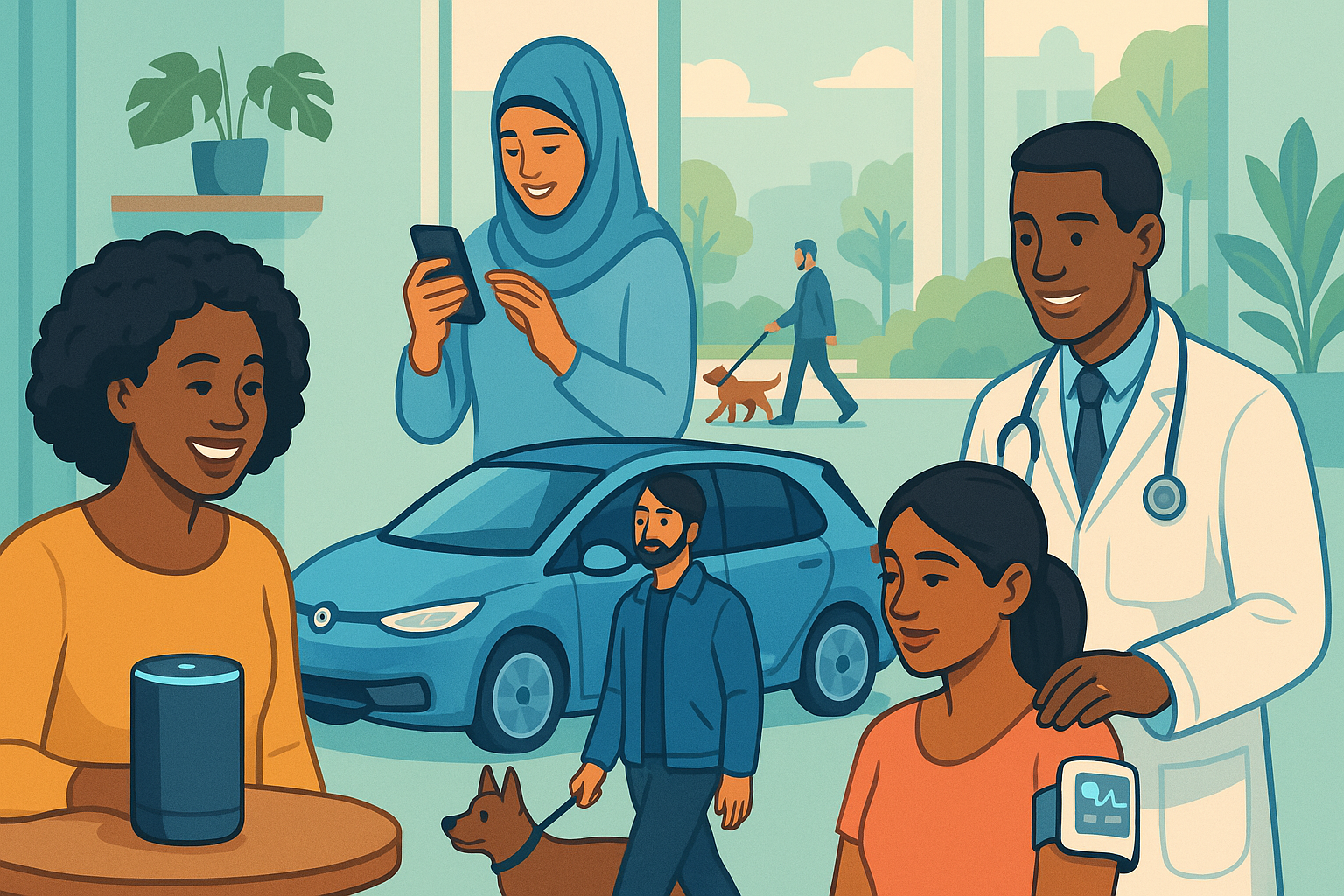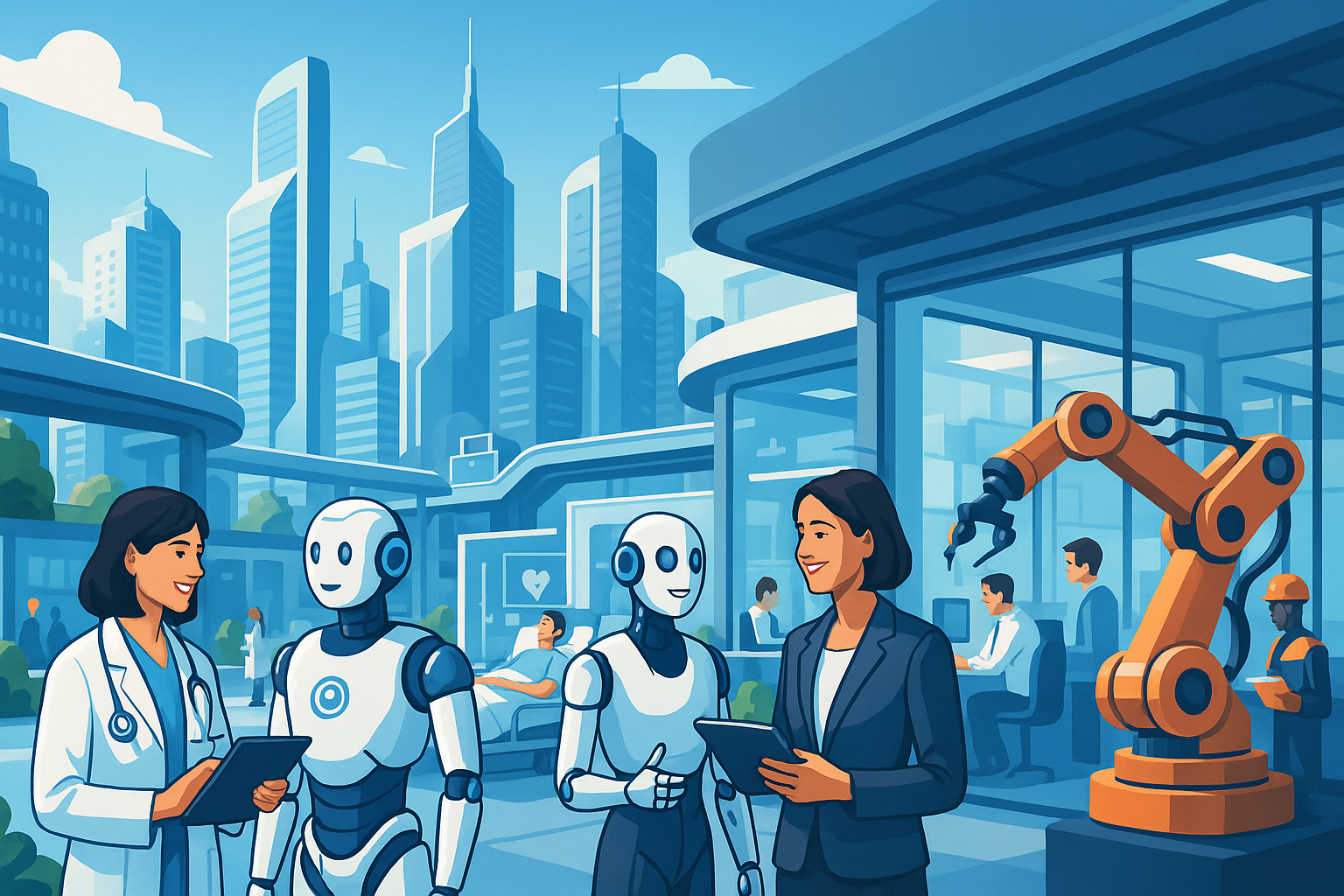Artificial intelligence (AI) has rapidly become a driving force behind innovation and efficiency in everyday living. But why artificial intelligence is very important in our daily life explain it in your own words? AI optimizes our routines, personalizes technology, and accelerates progress in fields as diverse as healthcare, communication, and business. With its intelligent algorithms and responsive capabilities, AI is not only transforming industries but also simplifying tasks and enhancing our experiences day by day.
The Impact of Artificial Intelligence on Daily Life
From voice-activated assistants like Siri and Alexa to personalized shopping suggestions and real-time language translation, artificial intelligence is woven into the fabric of our daily lives. AI enables smarter devices, predictive tools, and robotics, ensuring greater convenience, safety, and productivity. For example, AI-powered navigation apps reroute traffic for faster commutes, while streaming services suggest content based on our preferences, saving time and enhancing entertainment.
Why Artificial Intelligence Is Important in the Modern World
Modern society revolves around massive data generation, and only AI can efficiently process, analyze, and act on this data. Why artificial intelligence is important in modern world revolves around its role in digital transformation: automating processes, supporting critical decision-making, and enabling adaptability in rapidly changing markets. AI in banking flags fraudulent transactions, while in agriculture, it forecasts crop yields, boosting food security. AI’s importance lies in its versatility and its power to drive sustainable development, efficiency, and global connectivity.
Why Artificial Intelligence Is the Future of Growth
The phrase why artificial intelligence is the future of growth sums up AI’s promise: scalable intelligence and automation. Businesses use AI to analyze trends, predict customer behaviors, and optimize supply chains for faster, smarter growth. For governments, AI helps manage city infrastructures, improve public safety, and reduce resource wastage. As AI evolves, it will unlock new opportunities in emerging technologies, shaping tomorrow’s economy and job market.
Why Does Artificial Intelligence Use So Much Energy?
Prominent concerns in digital innovation include why does artificial intelligence use so much energy? The answer lies in the data-heavy and computation-intensive processes. Training neural networks and running complex machine learning models requires significant server resources, often concentrated in data centers. These computations are energy-hungry, but ongoing research focuses on creating more efficient hardware and data processing techniques to reduce AI’s carbon footprint, allowing smarter technology with a lighter environmental impact.
Why Do SMEs Adopt Artificial Intelligence-Based Chatbots?
Small and medium-sized enterprises (SMEs) recognize the value in cost-effective, scalable customer service. Why do SMEs adopt artificial intelligence based chatbots? AI chatbots automate responses, resolve common queries instantly, and offer 24/7 support, increasing customer satisfaction. They also collect feedback and guide users to relevant services or products, providing SMEs with valuable data to improve and personalize services without hiring large customer service teams.
Why Artificial Intelligence Can Never Replace Human Intelligence?
The debate on why artificial intelligence can never replace human intelligence centers around creativity, empathy, and complex reasoning that are uniquely human. While AI excels in speed, accuracy, and pattern recognition, it lacks consciousness, ethical understanding, and emotional depth. Human intelligence draws from culture, values, intuition, and nuanced social interactions, ensuring that AI will always play a supporting rather than a replacement role in our lives.
Frequently Asked Questions (FAQs)
1. How is artificial intelligence used in everyday products?
AI powers search engines, recommendation systems, voice assistants, language translators, and smart home devices, streamlining our routines and choices.
2. Can AI help address global challenges?
Yes. AI aids in climate modeling, disease prediction, resource management, and disaster relief, making problem-solving faster and more accurate.
3. Is AI environmentally sustainable?
Though AI is energy-intensive, ongoing innovation in hardware and software is driving improvements in energy efficiency and sustainability.
4. How do AI chatbots benefit small businesses?
They provide instant, tailored responses, increase customer engagement, and save costs on customer support resources.
5. Will AI replace human jobs?
AI will automate some tasks but will also create new roles, especially in technology, creativity, and human-centered services.
6. Where can I learn more about AI’s impact?
Read expert perspectives at the World Economic Forum’s AI hub.
Conclusion: Embracing Artificial Intelligence for a Brighter Tomorrow
Why artificial intelligence is very important in our daily life becomes clear when we see how it drives efficiency, improves safety, and creates personalized experiences. By responsibly adopting AI, we unlock growth, innovation, and solutions for complex challenges. The future is powered by a symbiotic relationship between human ingenuity and artificial intelligence.



